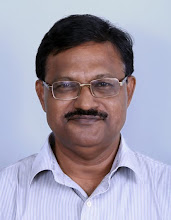O J’s Corner
The rich doesn’t know how to spend,
the poor has nothing to live for
I was thinking about the assertions made by President Pratibha Patil, Prime Minister Dr Manmohan Singh, and Bill Gates last week on what can be said as the state of the economy.
There are concerns for the rich and the poor, for the haves do not know how to spend accumulated wealth, and the have-nots are bereft of resources to make both ends meet. It would appear as though there is no meaning for either of these conditions, unless some sort of synergy is brought in for the survival of all.
President Pratibha Patil has, on the eve of the Republic Day, called for taking care of the disadvantaged sections. Prime Minister Manmohan Singh at a press conference with French President Nicolas Sarkozy at New Delhi that the country’s economic foundation was strong to tide over the global fall-out of US recession. Bombay Stock Exchange and National Stock Exchange had gone into a tail-spin and then recovered partially. Sarkozy had also spoken about the resilience of the banking system in his country to remain unaffected in spite of $ 7.5 billion fraud at one bank.
Fair enough, the economies are strong. But how will the concerns of the very poor and the downtrodden, who find it difficult to muster Rs 20 for a kilogramme of rice for a day, be addressed?
In the times when we are launching out into outer space, the moon, the planets, the solar system and the universe, let there be a mechanism to offer minimum survival resources to the lesser mortals.
That there is no meaning in life for even the super-rich has been stated by Warren Buffet, the second richest person in the world. “It is easier to create money than spend it”, he had said before parting with 85 per cent of his $ 44 billion wealth to the Bill and Melinda Gates Foundation in 2006. It seems Bill Gates himself had been convinced about the futility of ultra-richness. At least he and his wife Melinda were on the vanguard of acts of philanthropy. They were giving money back to the society by focusing on world health in fighting diseases such as malaria, HIV/AIDS, tuberculosis and taking measures to reduce extreme poverty.
Let us go through the observations made by Bill Gates at the World Economic Forum at Davos. The world is getting better, but it is not getting better fast enough, and it is not getting better for evenyone. He has urged business enterprises to work with governments and non-profit groups in a new kind of capitalism to stem global poverty and stir up more technological innovations to rope in those who were left behind.
True, the government of India has proposed a scheme to take care of farmers’ debts to the tune of Rs 65,000 crore. Will action follow forthwith? Farmers’ suicides, people’s inability to find livelihood, healthcare scenario remaining bleak, to name a few worries, do not go well with a flourishing and over-rich system. Deliberate steps to liberate the extremely poor would balance the economy, without which there would be no solace for anyone.
Sunday, February 03, 2008
Subscribe to:
Post Comments (Atom)


.jpg)



No comments:
Post a Comment